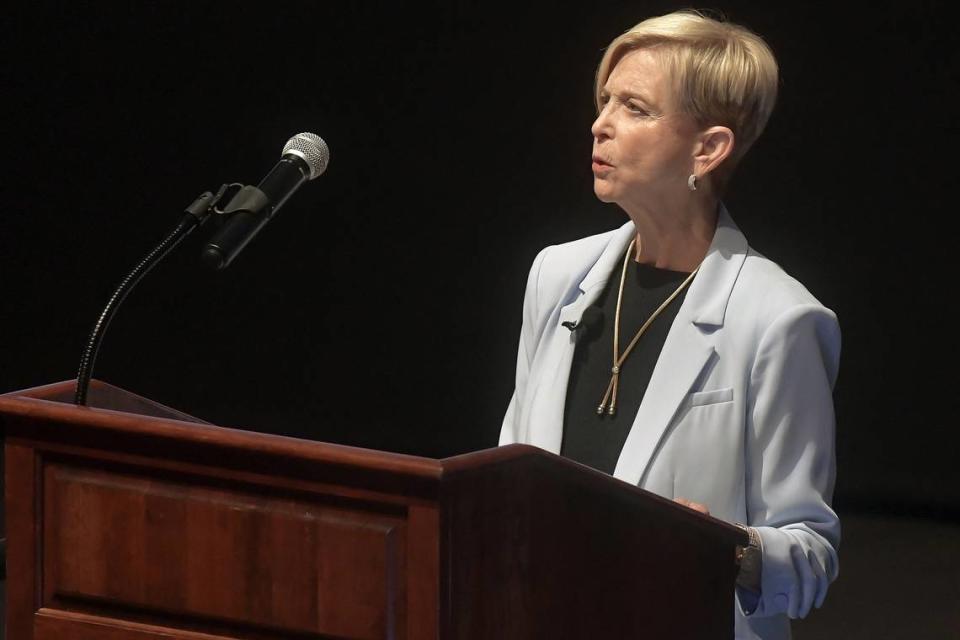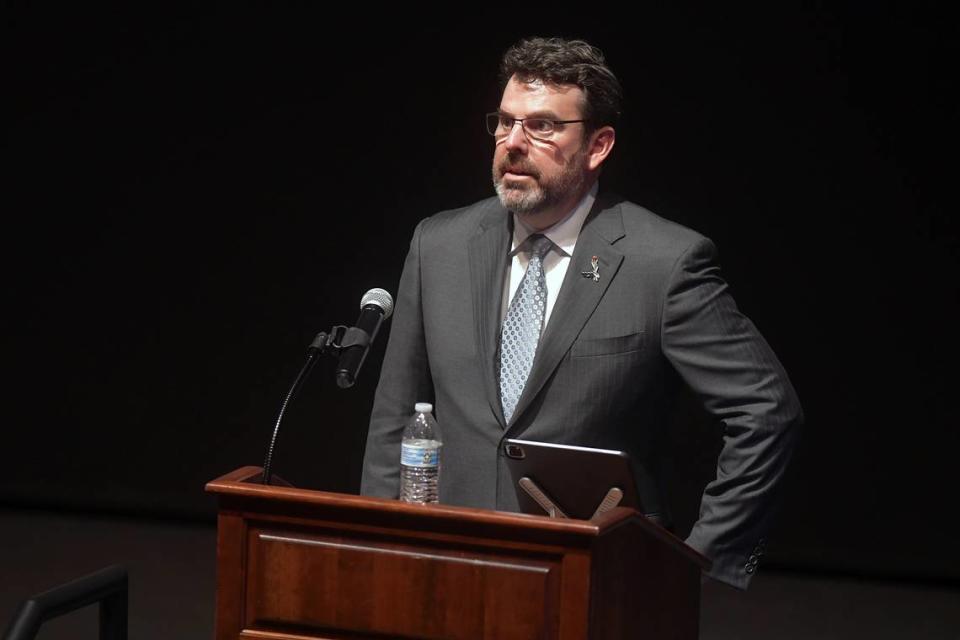National Infantry Museum lecture upholds legacy of Holocaust survivor and liberator
Dr. Reuben Sloan was a fellow at the Hughston Clinic studying primary care and sports medicine in the mid to late 1990s.
Sloan was one of 10 fellows selected to learn from Dr. Jack Hughston at the clinic, and one of the most important lessons his mentor taught him was how crucial it is to get to know patients.
“I wanted to have his humility,” Sloan said. “And I want to get to know my patients.”
Over a decade later in 2012, Sloan was keeping his promise by talking to one of his patients, Gail Cohn, about her family. The conversation began to get medical history, and they kept chatting from there.
He asked about Cohn’s father, Aaron Cohn, who Sloan knew by reputation from his time in Columbus because Aaron was a famous judge in the region. Cohn informed her doctor that her father passed away a few weeks prior and that she would be speaking about him at the National Infantry Museum.

Curious, Sloan asked for more information and learned that Aaron’s memory is being dedicated in the Holocaust exhibit of the World War II section in the museum. More curious, Sloan asks if Cohn’s father was being honored because he was a famous, well-respected Jewish man in Columbus.
Cohn told him no. Her father served in Lieutenant General George Patton’s Third Army and liberated a concentration camp. Cohn had all of Sloan’s attention.
“What concentration camp, Gale?” he asked.
“Ebensee,” Cohn told him. “A subcamp of Mauthausen.”
“It’s very possible your father rescued, saved, liberated my father from that hellhole,” Sloan told her.
Telling their fathers’ stories
Sloan and Cohn were shocked by the way their families likely crossed paths, a Holocaust survivor and a liberator, in Poland during World War II.
As the first lecture in a series at the National Infantry Museum, Sloan and Cohn told their fathers’ stories in a lecture titled Corresponding Angles to about 100 people Thursday evening.
“I’ve always been fascinated by World War II and Holocaust history,” Sloan said. “And given my father’s history, for me to come here and talk in his honor, his legacy, it’s just a dream come true.”
Sloan’s father, born Icek Slodowski, was between the ages of 12-14 years old when he was held in concentration camps in Poland.
One of the biggest questions Sloan had when he began this research was whether anyone else in his father’s family survived.
He found his answer.

Slodowski was the only member of his immediate family to survive. In an extended family of more than 120 people, he was one of only seven to survive: three women from his mother’s side and three men from his father’s side.
Researching his family history was difficult, Sloan said, because his father didn’t like to talk about the experience.
“There’s so many holes,” he said. “Thank God we have digitized databases now, and I’ve dug up so much information on him in the last year and a half that’s really pieced the story together.”
Cohn’s father, Aaron, was determined to speak out about the horrors he’d seen in the concentration camps while he served. He’d made a promise to a survivor.
“Look at me now,” the survivor told Aaron. “I’m a walking cadaver. My wife, my children, all murdered in the Holocaust and simply because we were born of the Jewish faith.”
The man made Aaron promise that he wouldn’t forget about them and that he would tell their story.
“He kept that promise for the rest of his life,” Cohn said.
Asked during the question and answer portion of the lecture as to whether they know for certain that their parents actually met, Sloan and Cohn said they are confident that they did.
The partner of Sloan’s eldest sister, David, remembered conversations he had with Slodowski over the 40 years they’d known each other. Sloan’s family were always glad to hear the few stories Slodowski told about the Holocaust, and he once spoke to David about a major in Patton’s Army who could communicate with him.
Sloan’s father didn’t speak English, he only knew Yiddish and a few words in German and Russian.
When Aaron arrived at Ebensee, the survivors shrunk in fear of the soldiers carrying guns and wearing combat boots. He spoke to them in Yiddish explaining that he was a Jewish American major.
The only major in Patton’s army that could communicate with Slodowski would have been Aaron Cohen, Sloan said.
“I think we have pretty convincing evidence that they met,” he said.

